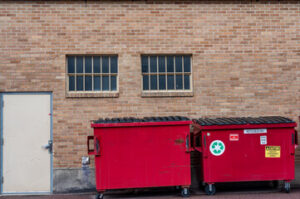When you need to rent a dumpster, one of your options is to call a local service. While this might seem the most convenient way to dispose of garbage, several factors affect the overall cost. Among the most important factors to consider are dumpster size, rental time, dump fees, and availability. Getting multiple quotes will help you determine the most affordable rental option for your needs. Below are some tips to help you make a wise decision about dumpster rental.
 Lastly, consider how to access the dumpster. Dumpster Rental will typically drop off trash containers on your property with a hook lift system affixed to a light-to-medium duty truck. Once dropped off, customers can place their unwanted items over the side panel or walk into the bin’s double-door walk-in. Typically, the rental period is five to 10 days. If you need the dumpster sooner, schedule the pickup in advance.
Lastly, consider how to access the dumpster. Dumpster Rental will typically drop off trash containers on your property with a hook lift system affixed to a light-to-medium duty truck. Once dropped off, customers can place their unwanted items over the side panel or walk into the bin’s double-door walk-in. Typically, the rental period is five to 10 days. If you need the dumpster sooner, schedule the pickup in advance.
First, think about what type of waste you will be throwing away. If you have a lot of trash to remove, renting a dumpster can be a practical solution. Most dumpster rental services charge by the week, so you can expect to pay extra if you need to keep the dumpster longer than the allotted time. In addition, keep in mind that heavy materials may require additional fees. You will also want to consider the dumping fee determined by the landfill where you live.
The price of renting a dumpster can vary, but it is usually consistent for both types. Typically, prices range from $292 to $480, with the average costing around $380. When choosing a dumpster rental company, remember to ask how much it will cost daily. If you need it for a longer period, check for the daily rate; the longer you need it, the higher the cost will be. In addition, make sure to return the dumpster on time, as late fees can cost you extra.
Choosing the Right Dumpster. When selecting a dumpster for your trash removal project, the type of debris you plan to throw out is the first thing to consider. Depending on the size of your project, some dumpsters can hold household junk, while others are better suited for construction waste. For example, a standard construction dumpster can contain drywall, wood, siding, flooring, roofing materials, and carpet. There are also dumpsters for yard waste, small appliances, and wires.
Aside from general waste, specific items are not permitted in a dumpster. Some items, such as aerosol cans, are not allowed. As a result, they can cause an explosion. Some landfills do not accept aerosol products and are not accepted in dumpster rental services. Additionally, if you are trying to dispose of an old mattress, you may need to contact a local company specializing in this.
Junk removal services differ from the dumpster rental in several ways. Junk removal companies generally provide a dumpster with a crew, whereas dumpster rental companies supply the dumpster. The cost of junk removal can vary, so it’s important to get several quotes before deciding. The decision will likely depend on your needs and your budget. Hopefully, these tips will help you decide which service is best for your needs. With little research, you’ll be on your way to a more organized, comfortable life.
There are different sizes of dumpsters. Dumpsters can range anywhere from 2 cubic yards to 40 cubic yards. Knowing the amount of debris, you plan to dispose of will help you determine the right dumpster size. Typically, a 10-yard dumpster will hold two to three tons of debris. The largest dumpsters, however, can accommodate up to five tons of waste. This is a good choice for small to midsize remodeling projects or cleaning up a large property.
Roll-off dumpsters are typically delivered via truck with a specialized lift system. The dumpster is dropped off for a specific period, usually one or two weeks. Roll-off dumpsters are great for temporary jobs when you need a large amount of trash. Their sizes range anywhere from 10 yards to 40 yards and are perfect for bulky items. In addition, roll-off dumpsters can handle a variety of materials, such as concrete, and are perfect for large construction debris.